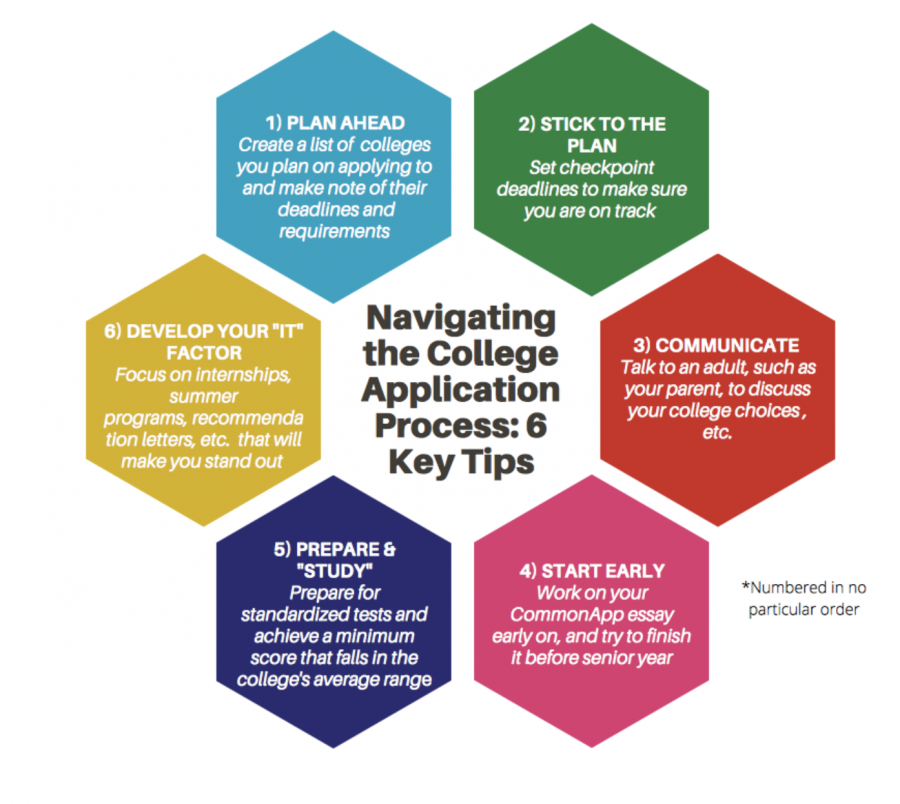The college application process can feel overwhelming. It's a big step toward your future.
Understanding this process is crucial for success. You need to know what colleges look for and how to present your best self. From gathering documents to writing essays, each part of the application matters. This guide will help you navigate the journey with confidence.
Whether you aim for a local college or a top university, the steps are similar. The goal is to show why you are a great fit for their program. Stay organized, start early, and take one step at a time. You can do this, and we're here to help. Let's dive into the college application process together.

Credit: www.gcu.edu
Researching Colleges
Think about what you love to do. Consider your hobbies and favorite subjects. Do you enjoy science? Maybe art or music? Your interests can guide your college choice. Write down your top interests. This list will help you find the right schools. Don't forget to think about your future career. What job do you dream of? Identifying interests is the first step in the journey.
There are many colleges to choose from. Make a list of possible schools. Look at the size of the college. Some students prefer big schools. Others like small ones. Check the location too. Do you want to stay close to home? Or move far away? Look at the programs each college offers. Compare them with your interests. This will help you narrow down your options. Visit college websites for more details. This is an exciting part of your journey.
Preparing For Standardized Tests
Some colleges prefer the SAT. Others prefer the ACT. Check your college list. See which test they accept. Pick the one that fits you best. Consider your strengths. The SAT has a math focus. The ACT has more science. Take practice tests. See which one you do better on. Choose that test.
Create a study plan. Stick to it. Break study time into chunks. Take breaks in between. Use flashcards for key terms. Practice with old test papers. Focus on weak areas. Join a study group. Share tips and notes. Stay positive. Believe in yourself. You can do it.
Building A Strong Academic Record
Choose courses that challenge you. Colleges like to see tough classes. Take advanced classes if you can. Balance your schedule well. Avoid taking too many hard classes at once. Show that you can handle different subjects. Math, science, and languages are important. Do your best in all of them.
Join clubs or teams at school. Participate in what you enjoy. Colleges look for students with interests outside class. Be active in your community. Volunteer or join groups. Show leadership in activities. Being a leader is a plus. Keep a record of your activities. It helps when filling out applications.
Gathering Application Materials
Transcripts show your school performance. They list all classes and grades. Most colleges need these documents. Always ask your school for a copy. Make sure your grades are good. Strong grades can help a lot. Colleges look at them closely.
Letters of recommendation are very important. Teachers and counselors write them. They talk about your skills and character. Pick people who know you well. Ask them early. Give them enough time to write. Good letters can make a big difference.
Crafting The Personal Statement
Choose a topic that is meaningful to you. Think about your hobbies and passions. Share a story that shows your character. Focus on what makes you unique. Avoid common topics unless you have a fresh view.
Start with an attention-grabbing opening. Use specific examples to support your story. Be honest and genuine. Avoid big words; keep it simple. Edit your work for spelling and grammar errors.
Completing The Application
The Common Application is used by many colleges. It saves time. Fill out your details once. Then send to many schools. Include your personal info, grades, and essays. Make sure to double-check everything. Ask someone to proofread. Avoid mistakes.
Some schools use their own forms. Check each college's website. Follow their instructions carefully. These forms might need extra essays. Give yourself enough time. Stay organized. Write down deadlines. Submit early if possible. Don't wait until the last minute.
Applying For Financial Aid
Both FAFSA and CSS Profile help students get money for college. FAFSA is free. It helps you get federal aid. CSS Profile is not free. It helps you get aid from schools. Fill out both forms online. Deadlines are very important. Be sure to check them.
Many students look for scholarships and grants. These do not need to be paid back. Scholarships can come from schools, companies, or groups. Grants usually come from the government. Both can help reduce college costs. Apply to as many as you can. Check eligibility requirements before applying.

Credit: thevikingpresstvs.com
Preparing For Interviews
Speak clearly and look at the interviewer. Practice common questions to feel ready. Stay calm and smile often. Show interest in the college.
Question | Tip |
|---|---|
Tell me about yourself. | Share your hobbies and goals. |
Why do you want to attend this college? | Talk about the programs you like. |
What are your strengths? | Give examples from school or activities. |
What are your weaknesses? | Be honest and show how you improve. |
Do you have any questions for us? | Ask about student life or classes. |
Making The Final Decision
Choosing the right college involves weighing all options carefully. Focus on what feels right for you. Consider location, courses, and campus life.
Comparing Offers
Compare the financial aid packages from each college. Check the scholarships and grants offered. Look at the total cost of attendance. Include tuition, fees, and living expenses. Consider the reputation of the programs you are interested in. Talk to current students about their experiences. Check the job placement rates after graduation. Don't forget to consider the location and campus safety. Make sure to check the extracurricular activities available. Pick the offer that fits you best.
Campus Visits
Visit the campuses you are interested in. Walk around and get a feel for the place. Talk to students and professors. Check out the classrooms and dorms. See the library and other facilities. Attend a class if you can. Eat at the dining hall. Try to imagine yourself living there. Ask questions about anything you are unsure about. Use these visits to help make your decision.
Credit: www.drmartinklein.com
Frequently Asked Questions
What Are The Steps In The College Application Process?
The college application process includes researching colleges, preparing application materials, writing essays, obtaining letters of recommendation, submitting applications, and attending interviews if required.
When Should I Start My College Applications?
Start your college applications in the summer before your senior year. This allows ample time for research, preparation, and revisions.
How Important Are Recommendation Letters?
Recommendation letters are crucial. They provide insight into your character and achievements from a trusted source, enhancing your application.
What Should Be Included In A College Essay?
A college essay should include personal stories, experiences, goals, and reflections. It should showcase your personality and how you align with the college's values.
Conclusion
The college application process can feel overwhelming. Stay organized and plan ahead. Research each college's requirements early. Write clear, honest essays. Seek help from teachers and family. Proofread everything carefully. Submit applications before deadlines. Remember, persistence pays off. You have prepared well.
Stay positive and confident. Good luck with your applications!
.png)






0 Comments